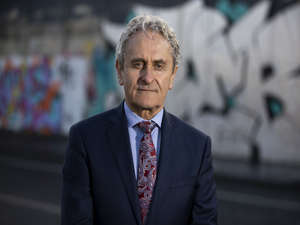
Q Radio News/PA
The head of a major peace fund has warned of growing alienation after the coronavirus pandemic and Brexit.
International Fund for Ireland (IFI) chairman Paddy Harte said it is impossible to rule out future disorder such as the scenes at the Lanark Way peace line in west Belfast in April.
Mr Harte also warned that paramilitary groups on both sides of the divide are gaining support from vulnerable communities who feel they have been let down by the peace process.
He said recent recruitment by dissident republicans was “alarming” as well as loyalists capitalising on anger at the Northern Ireland Protocol, seen by that community as a border in the Irish Sea.
He said a huge amount of work had gone on behind the scenes earlier this year to quell the serious disorder that erupted at a gate in the peace wall between the Falls Road and Shankill Road.
The violence stopped after several consecutive nights of disorder.
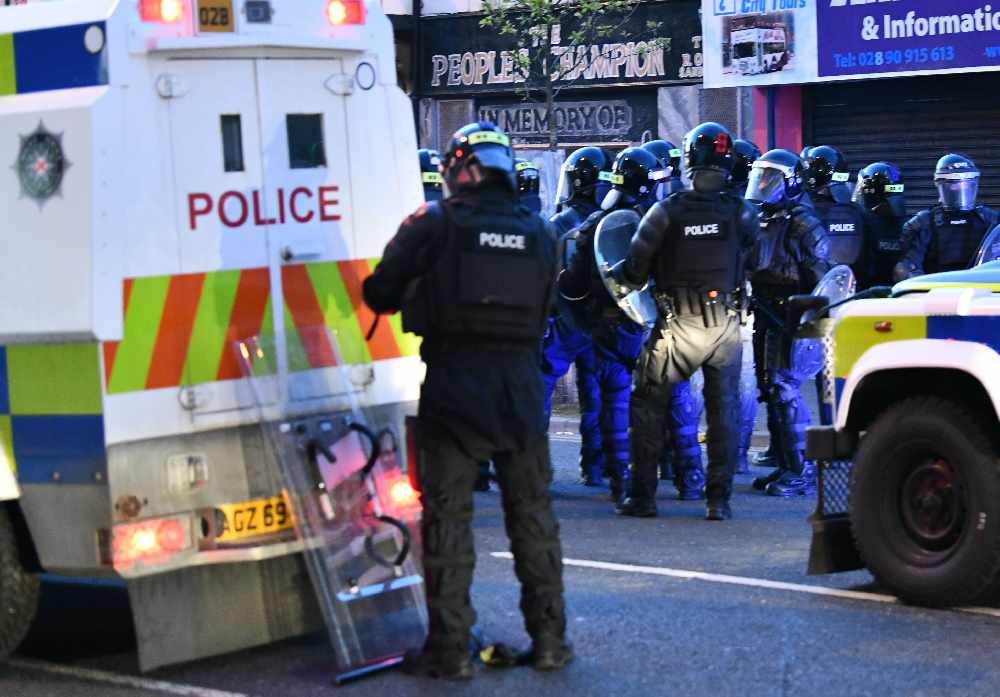
A warning has been issued of the possibility of further street violence here
“We were able to put in a fairly rapid response to enable our community workers to work together to ensure that there were young people with credentials there to persuade as many as they could not to get involved,” Mr Harte told the PA news agency.
“It was night and day work… had it not been for the presence of our groups and others, that could have spun out of control, there could have been fatalities – it’s not magic that things didn’t start up again, because people stayed on top of it.”
The efforts included groups of young people from across the divide attending the Uefa Super Cup clash between Chelsea and Villareal in July at Windsor Park as part of new relationships being built.
Significant work also went on behind the scenes at the North Queen Street/Duncairn interface in north Belfast after tensions rose over the siting of a loyalist July 11 bonfire.
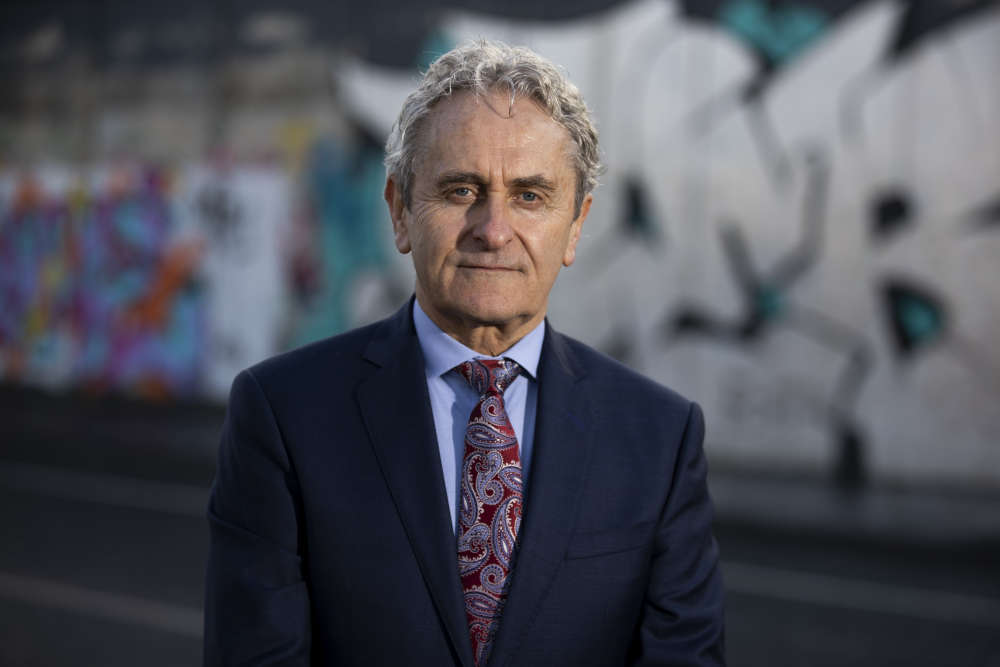
International Fund for Ireland chairman Paddy Harte
However Mr Harte warned: “There is only so long society can expect volunteers and community workers to continue to do this.
“People continue to work, and it is a fairly challenging environment for communities workers, but with support from ourselves and others I think we’ll get through it, providing that support stays.
“It’s very, very possible (violence could erupt again) however the connections that we have within communities and the networks that we have means that we could respond again, but it would be very naive for anyone to think that Lanark Way wouldn’t happen again.
“We are dealing primarily with generations of quite appalling conflict.
“Brexit has brought up issues of culture and identity, and raised old sores that had gone well into the background. The protocol has brought up this threat to the union and opportunity for a united Ireland – that sort of binary position is something that us and others have worked for years trying to show there are much more significant things to deal with.
“When we lay Covid on that, that restricted if not stopped opportunities for discourse around these things that helped us in our challenging conversations to work through concerns people were having.
“Covid also brought into play Covid nationalism, for want of a better word, that people started to compare what was going on in Ireland with what was going on in Britain, and on one side of the border and the other people started to label people again in a way that had gone into the background.”
Raising the marking of a number of centenary dates, Mr Harte said there are “lots of things that are coming together at the same time that make our work quite challenging and the consequences of all those things are that people have gone back into traditional positions”.
“The middle ground is smaller now than it has been for the last 15 years,” he added, referring to a recent survey which found growing alienation in society.
The fund also supports work around peace walls, with recent progress around barriers at Bishop Street in Londonderry and the gates at Flax Street in north Belfast.
Mr Harte was speaking as the fund launches its new four-year strategy which says renewed efforts to build cross-border relationships are “critical to achieving long-term sustainable peace”.
Connecting Communities includes four programmes to empower marginalised communities.
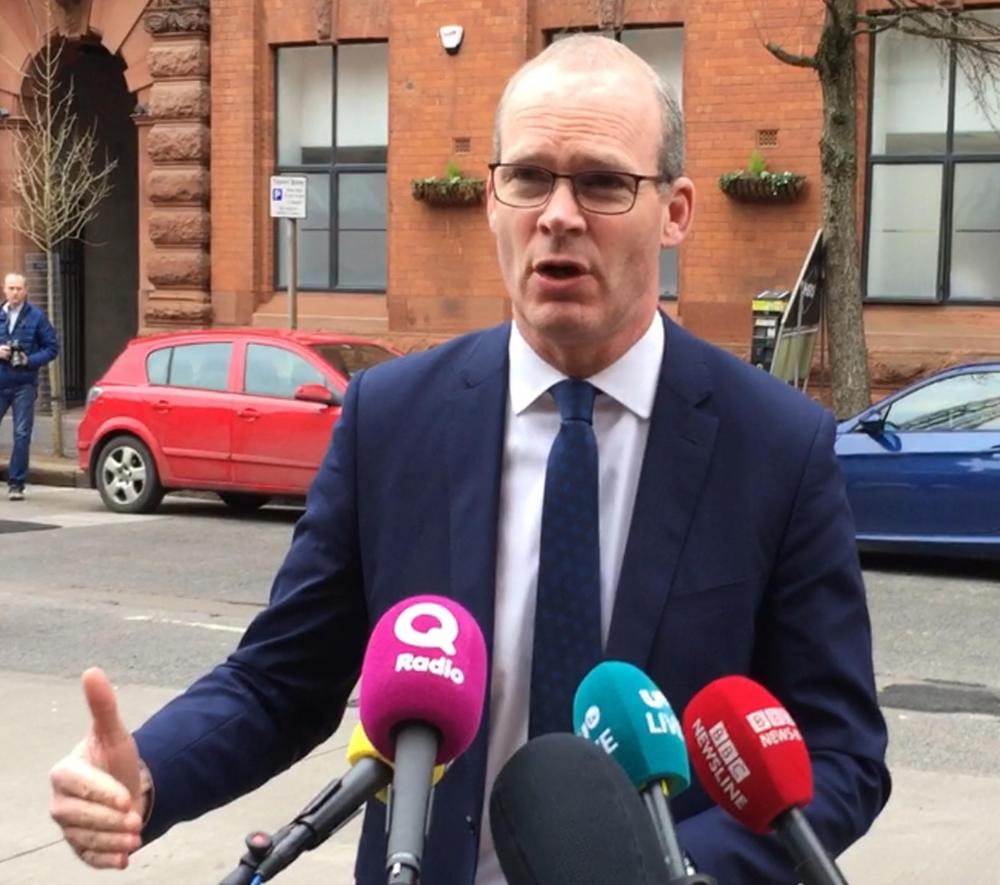
Irish Foreign Affairs Minister Simon Coveney
The strategy has been welcomed by Northern Ireland Secretary Brandon Lewis and Irish Foreign Affairs Minister Simon Coveney.
Mr Lewis said the fund has done “unparalleled work to build and sustain peace by promoting and facilitating reconciliation and by tackling the underlying causes of violence and sectarianism”, adding it “continues to have a vital role to play”.
Mr Coveney added: “As the world recovers from the social and economic effects of the Covid pandemic, and as Northern Ireland and the border counties continue to deal with the legacy of the past and the impact of Brexit, the work of the fund, through its engagement with the young and the most marginalised, is greatly needed in the period that lies ahead.”
The IFI was set up by the British and Irish governments as an independent organisation in 1986.
It delivers a range of peace and reconciliation initiatives across Northern Ireland and the southern border counties.


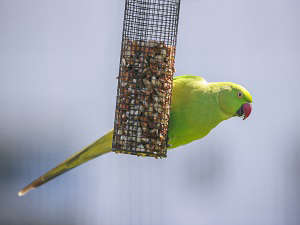 Guidance sought over future of colourful parakeets in Belfast park
Guidance sought over future of colourful parakeets in Belfast park
 Woman released after questioning over pipe bombs in Co Down
Woman released after questioning over pipe bombs in Co Down
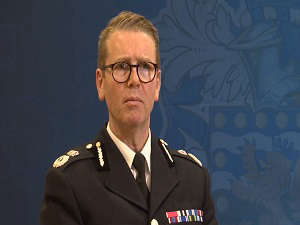 Suspended chief constable will not be prosecuted over alleged sexual offences
Suspended chief constable will not be prosecuted over alleged sexual offences
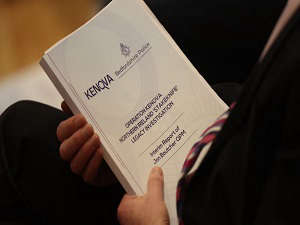 MI5 files not deliberately withheld from Stakeknife probe, review concludes
MI5 files not deliberately withheld from Stakeknife probe, review concludes
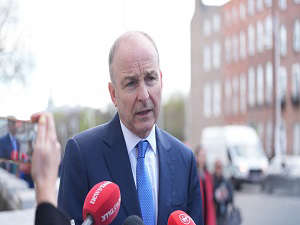 Taoiseach urges gardai and others to testify at Omagh bomb inquiry if asked
Taoiseach urges gardai and others to testify at Omagh bomb inquiry if asked